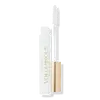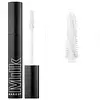What's inside
What's inside
 Key Ingredients
Key Ingredients

 Benefits
Benefits

 Concerns
Concerns

 Ingredients Side-by-side
Ingredients Side-by-side

Water
Skin ConditioningPolybutene
Paraffin
PerfumingPotassium Cetyl Phosphate
EmulsifyingCera Alba
EmollientCopernicia Cerifera Cera
EmollientCopernicia Cerifera Wax
Steareth-2
EmulsifyingCetyl Alcohol
EmollientAlcohol Denat.
AntimicrobialPhenoxyethanol
PreservativeHydroxyethylcellulose
Emulsion StabilisingAcacia Senegal Gum
MaskingPanthenol
Skin ConditioningEthylenediamine/Stearyl Dimer Dilinoleate Copolymer
Skin ConditioningCaprylyl Glycol
EmollientHydrogenated Jojoba Oil
AbrasiveHydrogenated Palm Oil
Emollient2-Oleamido-1,3-Octadecanediol
Skin ConditioningDisodium EDTA
BHT
AntioxidantRosa Canina Fruit Oil
EmollientStearyl Alcohol
EmollientMyristyl Alcohol
EmollientPentaerythrityl Tetra-Di-T-Butyl Hydroxyhydrocinnamate
AntioxidantPropylene Glycol
HumectantPropyl Gallate
AntioxidantCitric Acid
BufferingWater, Polybutene, Paraffin, Potassium Cetyl Phosphate, Cera Alba, Copernicia Cerifera Cera, Copernicia Cerifera Wax, Steareth-2, Cetyl Alcohol, Alcohol Denat., Phenoxyethanol, Hydroxyethylcellulose, Acacia Senegal Gum, Panthenol, Ethylenediamine/Stearyl Dimer Dilinoleate Copolymer, Caprylyl Glycol, Hydrogenated Jojoba Oil, Hydrogenated Palm Oil, 2-Oleamido-1,3-Octadecanediol, Disodium EDTA, BHT, Rosa Canina Fruit Oil, Stearyl Alcohol, Myristyl Alcohol, Pentaerythrityl Tetra-Di-T-Butyl Hydroxyhydrocinnamate, Propylene Glycol, Propyl Gallate, Citric Acid
Water
Skin ConditioningParaffin
PerfumingBambusa Arundinacea Stem Extract
Skin ConditioningGlyceryl Stearate
EmollientSynthetic Wax
AbrasiveStearic Acid
CleansingAcacia Senegal Gum
MaskingButylene Glycol
HumectantPalmitic Acid
EmollientPolybutene
Oryza Sativa Bran Wax
Skin ConditioningVp/Eicosene Copolymer
Ozokerite
Emulsion StabilisingAminomethyl Propanol
BufferingHydrogenated Vegetable Oil
EmollientPhenoxyethanol
PreservativeStearyl Stearate
EmollientHydroxyethylcellulose
Emulsion StabilisingNylon-6
Papaver Somniferum Seed Oil
EmollientCannabis Sativa Seed Oil
EmollientGlycerin
HumectantHelianthus Annuus Seed Oil
EmollientDipteryx Odorata Seed Extract
MaskingTheobroma Grandiflorum Seed Butter
Skin ConditioningCopernicia Cerifera Wax
Silica
AbrasiveTropolone
Skin ConditioningAframomum Melegueta Seed Extract
Skin ConditioningHelichrysum Italicum Extract
AntiseborrhoeicWater, Paraffin, Bambusa Arundinacea Stem Extract, Glyceryl Stearate, Synthetic Wax, Stearic Acid, Acacia Senegal Gum, Butylene Glycol, Palmitic Acid, Polybutene, Oryza Sativa Bran Wax, Vp/Eicosene Copolymer, Ozokerite, Aminomethyl Propanol, Hydrogenated Vegetable Oil, Phenoxyethanol, Stearyl Stearate, Hydroxyethylcellulose, Nylon-6, Papaver Somniferum Seed Oil, Cannabis Sativa Seed Oil, Glycerin, Helianthus Annuus Seed Oil, Dipteryx Odorata Seed Extract, Theobroma Grandiflorum Seed Butter, Copernicia Cerifera Wax, Silica, Tropolone, Aframomum Melegueta Seed Extract, Helichrysum Italicum Extract
Ingredients Explained
These ingredients are found in both products.
Ingredients higher up in an ingredient list are typically present in a larger amount.
Acacia Senegal Gum has skin soothing, thickening, and formulation stabilizing properties. It comes from the Acacia tree that is native to sub-Saharan Africa.
Copernicia Cerifera Wax comes from a palm tree native to Brazil; another name for this ingredient is Carnauba Wax.
This ingredient is used to thicken texture and also leaves behind a film when applied.
Fun fact: This wax has the highest melting point of all natural waxes and low solubility.
Learn more about Copernicia Cerifera WaxHydroxyethylcellulose is used to improve the texture of products. It is created from a chemical reaction involving ethylene oxide and alkali-cellulose. Cellulose is a sugar found in plant cell walls and help give plants structure.
This ingredient helps stabilize products by preventing ingredients from separating. It can also help thicken the texture of a product.
This ingredient can also be found in pill medicines to help our bodies digest other ingredients.
Learn more about HydroxyethylcelluloseParaffin is a solid created from petroleum. The term 'paraffin' can also refer to either
petroleum jelly or mineral oil.
It has natural occlusive properties which can worsen oily skin. Due to its petrolatum base, this ingredient is not fungal-acne safe.
Phenoxyethanol is a preservative that has germicide, antimicrobial, and aromatic properties. Studies show that phenoxyethanol can prevent microbial growth. By itself, it has a scent that is similar to that of a rose.
It's often used in formulations along with Caprylyl Glycol to preserve the shelf life of products.
Polybutene is used to help control the viscosity of a product. This just means it helps adjusts the texture.
It is a polymer and does not get absorbed into the skin due to its large size.
Studies found this ingredient did not irritate skin in concentrations below 15%.
Learn more about PolybuteneWater. It's the most common cosmetic ingredient of all. You'll usually see it at the top of ingredient lists, meaning that it makes up the largest part of the product.
So why is it so popular? Water most often acts as a solvent - this means that it helps dissolve other ingredients into the formulation.
You'll also recognize water as that liquid we all need to stay alive. If you see this, drink a glass of water. Stay hydrated!
Learn more about Water